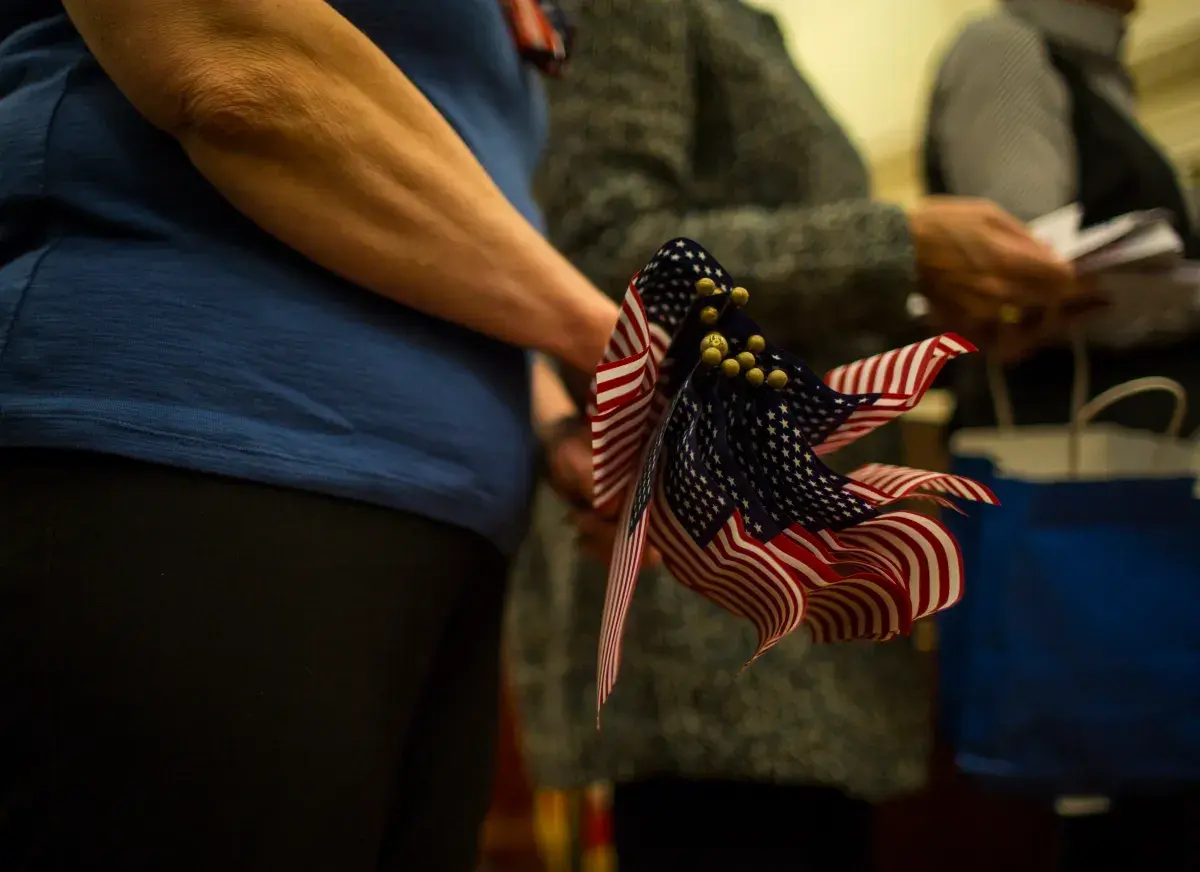Copyright Newsweek

Experts have warned that green card holders now face a tougher path to United States citizenship, as a new civics test demanding higher scores came into effect Monday. "The changes to the naturalization test could make passage more difficult for some test takers," Julia Gelatt, associate director of the U.S. Immigration Program at the Migration Policy Institute, told Newsweek: Why It Matters The new test comes amid the Trump administration's efforts to tighten the U.S. immigration system, with applicants seeking citizenship now facing increased scrutiny in the form of community interviews, and the federal government looking out for whether immigrants show they hold American values and are of good moral character. What To Know Starting October 20, U.S. Citizenship and Immigration Services (USCIS) will require all applicants for U.S. citizenship to take the updated 2025 Naturalization Civics Test. The revised exam is designed to evaluate applicants’ knowledge of U.S. history and government more thoroughly, and those filing Form N-400 on or after this date will also undergo moral character assessments. Applicants who submit their applications before October 20 will follow the previous testing guidelines. Under the previous 2008 Naturalization Civics Test, applicants must answer 6 out of 10 questions correctly, according to USCIS. These 10 questions are randomly selected from a pool of 100. The upcoming 2025 Naturalization Civics Test will expand the question pool to 128 and require applicants to answer 12 of 20 questions correctly to pass. The new question set combines items from both the 2008 and 2020 tests. The exam remains pass/fail, and a USCIS officer will continue asking questions until a pass or fail determination can be made. Applicants aged 65 and older who have been legal permanent residents for at least 20 years will take a modified version of the test. This version includes 10 questions randomly chosen from a bank of 20, drawn from the 2008 and 2020 tests. Some answers on the civics test may change over time due to federal or state elections, judicial appointments, or updates to laws. "In the past, experts have advised that the naturalization test be carefully designed and tested to ensure that it is measuring what it is meant to measure," Gelatt said. "That has not yet happened. Without assessment, it is not clear that the test that was in place was failing to properly measure knowledge of U.S. civics, or that the new test will do a better job." Under the new rules, not all 20 questions may need to be asked. The questioning will stop once an applicant has either answered 12 questions correctly, meeting the passing threshold, or answered 9 questions incorrectly, therefore failing the test. Applicants are allowed to retake the test if they do not pass on their first attempt. However, failing the test twice will result in the denial of their citizenship application. The question pool has also been expanded to cover more challenging topics related to U.S. history, government, and national symbols. A version of the updated civics test was initially introduced during President Donald Trump’s first term. Under former President Joe Biden, USCIS returned to the 2008 version of the test. Green card holders face revocation if eligibility or legal issues are identified. The Trump administration has targeted green card holders and applicants with criminal histories as part of their mass deportation plans. What People Are Saying Julia Gelatt, associate director of the U.S. Immigration Program at the Migration Policy Institute, told Newsweek: "This new test is also being implemented as the Trump administration has pulled back funding for English and civics education, and is seeking to reduce future funding, which will make it harder for some noncitizens to prepare for the test. And it is happening while other changes are being made to the naturalization process, including a requirement that naturalization applicants provide evidence that they have 'good moral character,' and the reimplementation of neighborhood checks for some applicants. Taken all together, it seems likely that a smaller share of naturalization applicants will be successful going forward." USCIS spokesperson Matthew Tragesser said in a statement: “American citizenship is the most sacred citizenship in the world and should only be reserved for aliens who will fully embrace our values and principles as a nation. By ensuring only those aliens who meet all eligibility requirements, including the ability to read, write, and speak English and understand U.S. government and civics, are able to naturalize, the American people can be assured that those joining us as fellow citizens are fully assimilated and will contribute to America’s greatness. These critical changes are the first of many." Doris Meissner, a senior fellow at the Migration Policy Institute and former director of the U.S. Immigration Service, told Newsweek in September: "The way in which they're explaining why they're doing this, really casts doubt on people's eligibility. It suggests that people applying for naturalization are somehow either not eligible or have questionable intent for naturalizing or it needs to be clearly established that they will be good Americans." What Happens Next The new test rules are in effect from Monday, October 20.



